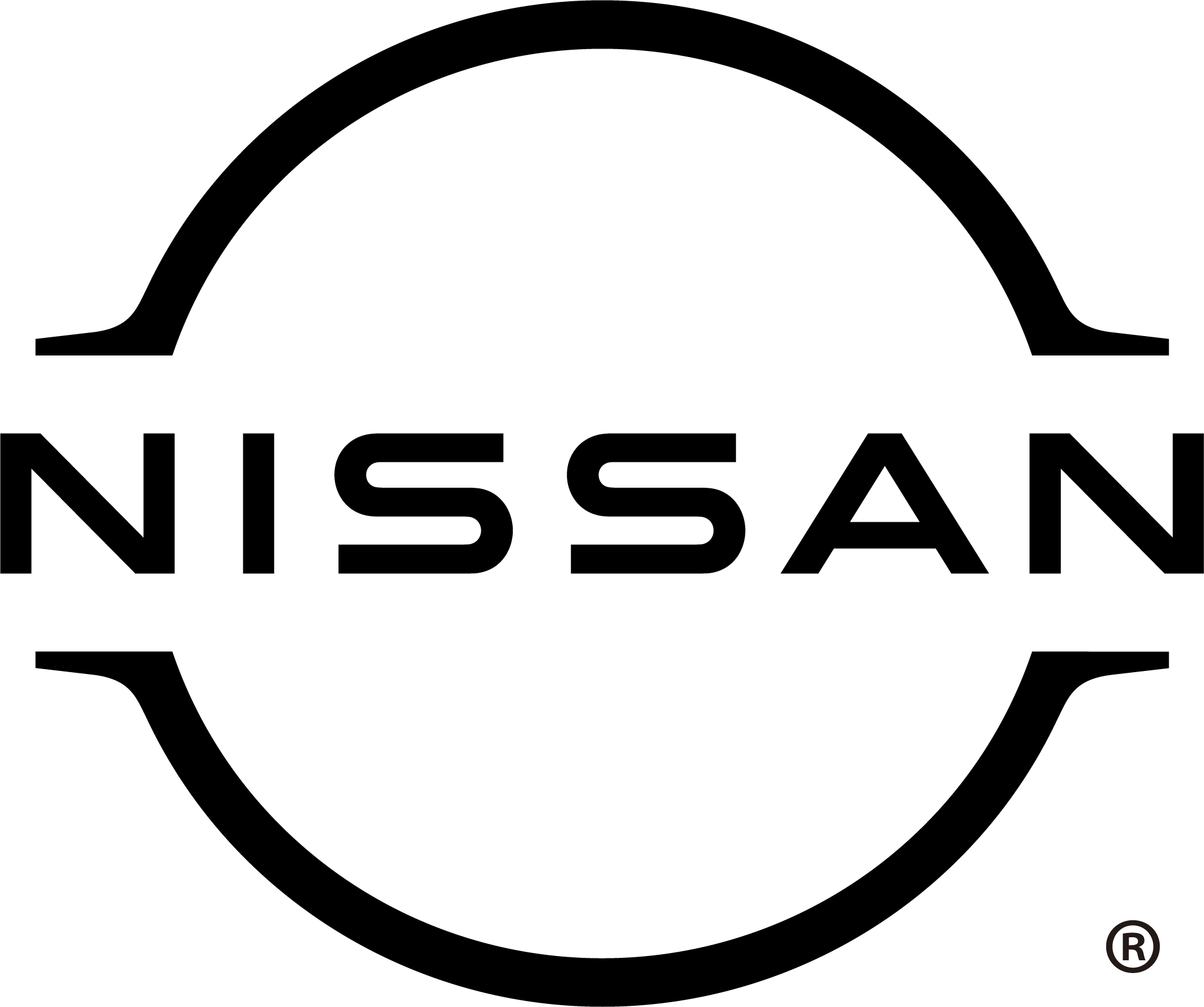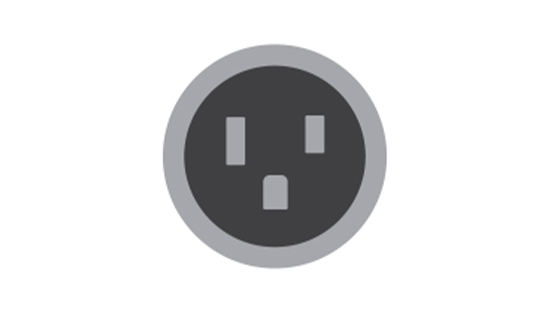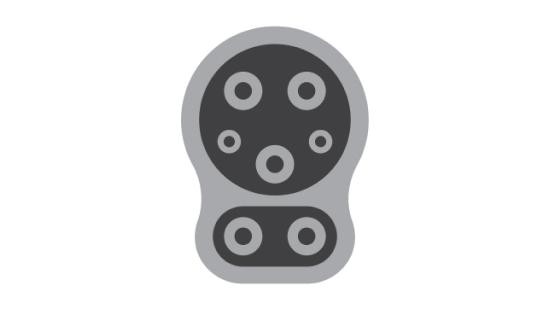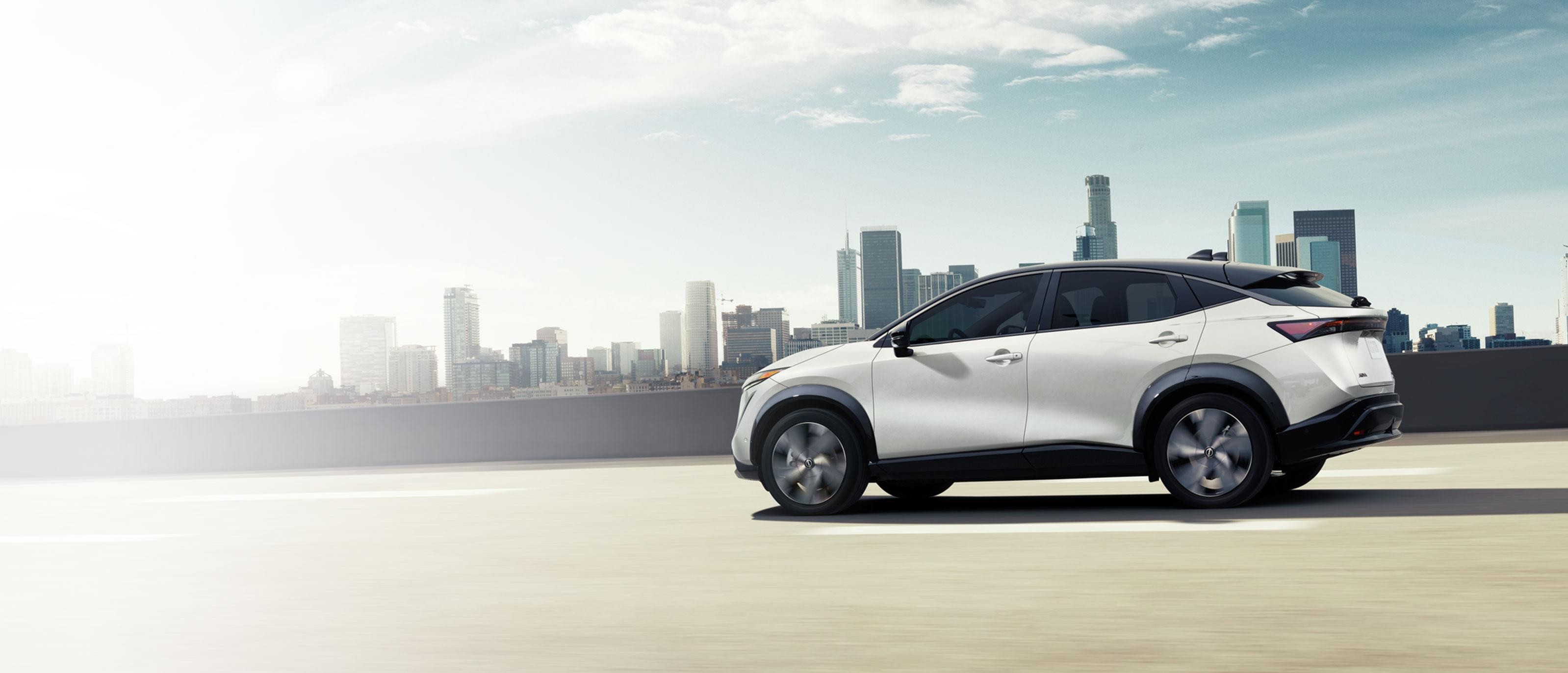
Charge, Range & Battery
As battery technology advances, range increases, and charging becomes more convenient, more drivers than ever are going EV. As the manufacturer of the world’s first mass-market electric vehicle, Nissan is at the forefront of the electric-driving revolution. As your local Nissan dealer, Lee Johnson Nissan of Kirkland is your partner on your EV journey – from sales and service to the many benefits and perks that come with making the switch to 100% electric driving.1
Range options for your Nissan EV (1,2)
Travel further on a single charge
Nissan's EVs offer a variety of battery sizes which power different ranges. The 2023 ARIYA is available with two battery options – one 87 kWh and one 63 kWh. The ARIYA VENTURE+ 87 kWh battery version has an EPA estimated range of up to 304 miles.3 The 2023 Nissan LEAF also offers two battery options with the larger 60 kWh battery offering an estimated EPA range of up to 212 miles on a single charge in the LEAF SV PLUS version. The LEAF’s range is up to 149 miles with the standard 40 kWh battery in the LEAF S.4
Both vehicles offer Eco Mode – a feature that boosts the vehicle’s already impressive efficiency. On downhills, use B-Mode to capture and convert braking energy into charge that's then returned to your battery.
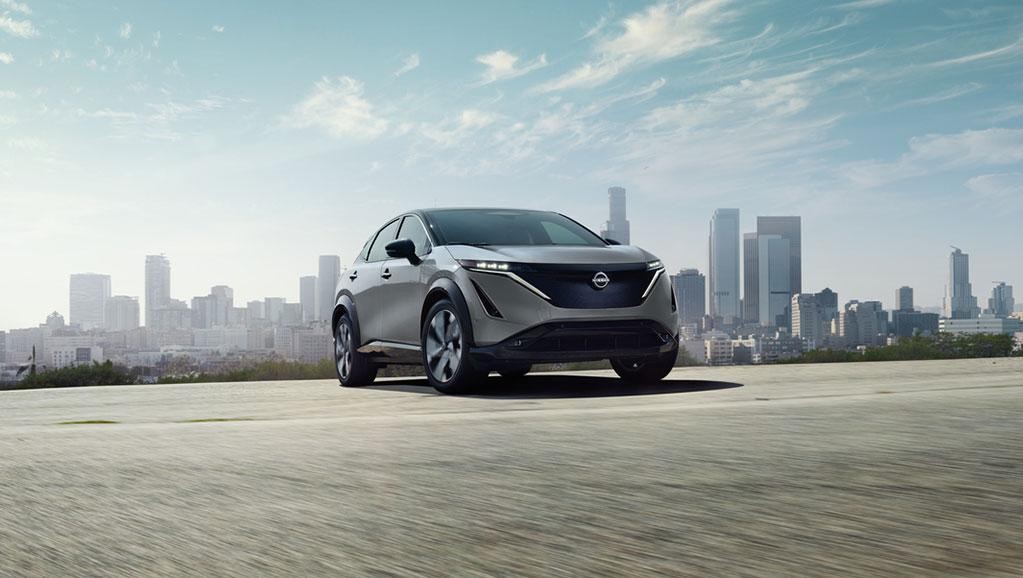
2023 Nissan Ariya
Maximum Range: Up to 304 miles with VENTURE+3
Battery: 87 kWh option
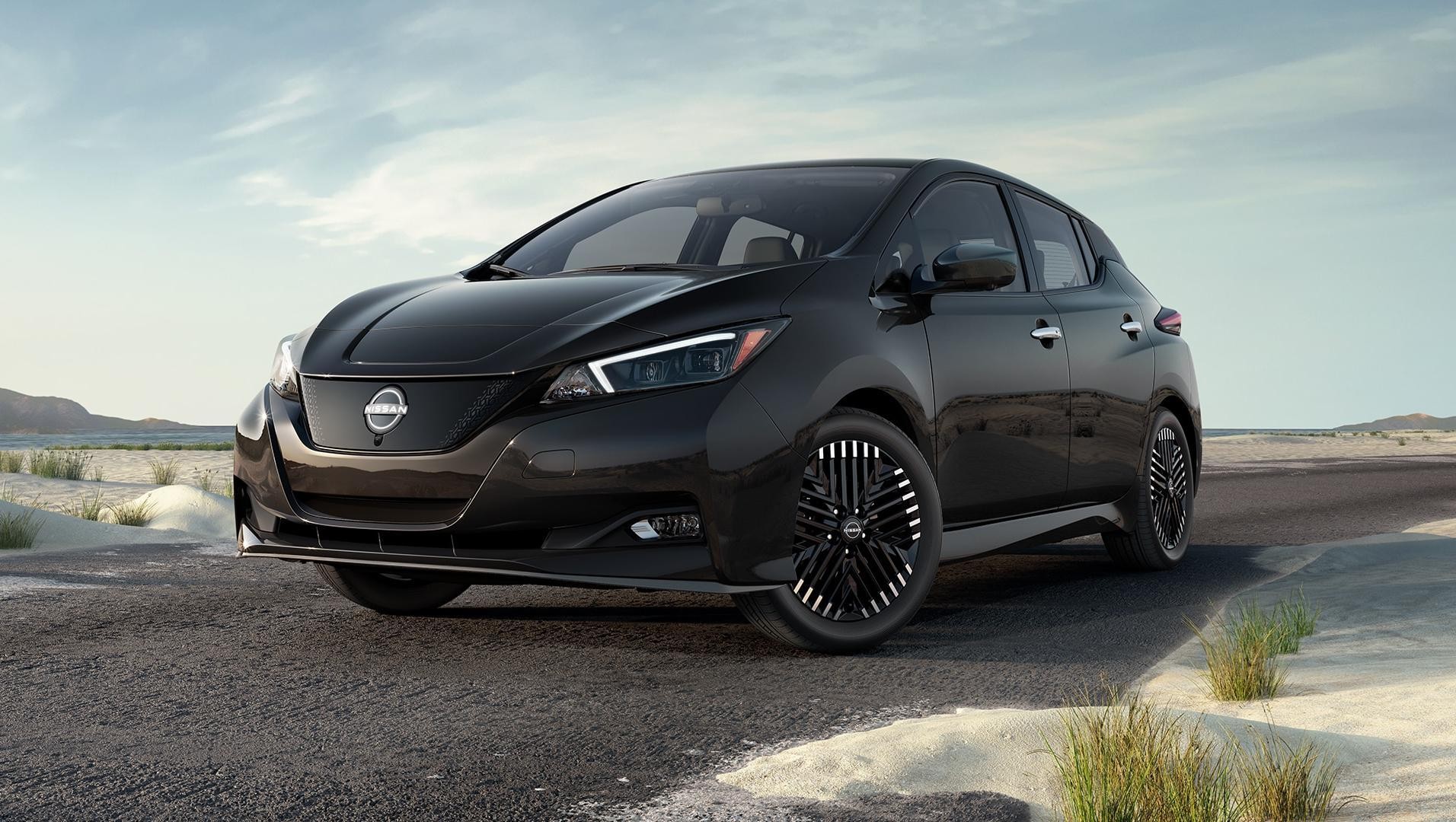
2023 Nissan LEAF
Maximum Range: Up to 212 miles with LEAF SV PLUS4
Battery: 60 kWh option
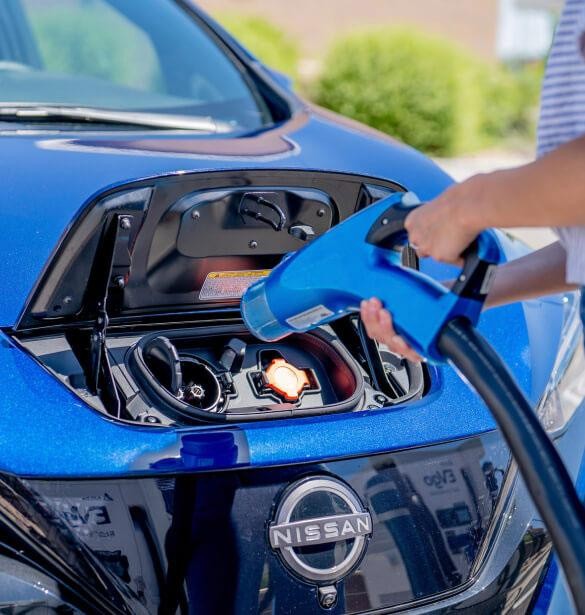
Electric vehicle charging 101
Easy EV charging
Charging your new EV is simple.2 Follow these steps at any compatible charging station:5
Nissan ARIYA
1. Park your Nissan ARIYA and make sure the vehicle is turned off.
2. Open the charge port lid and cap.
3. Plug the charge connector into the charge port. When done correctly, your EV lets you know with a quick beep.
4. When the battery is fully charged, your Nissan ARIYA stops charging on its own.
Nissan LEAF
1. Park your Nissan LEAF and make sure the vehicle is turned off.
2. Turn off the vehicle and press the charge port release button to open the charge port.
a. The vehicle can be turned on immediately after.
b. If the charge port is open, you can plug the LEAF in while it’s on and it will begin charging.
3. Plug the charge connector into the charge port. When done correctly, your LEAF lets you know with a quick beep.
Tip: An EV battery optimally charges when it has a charge of over 20% but below 80%.1
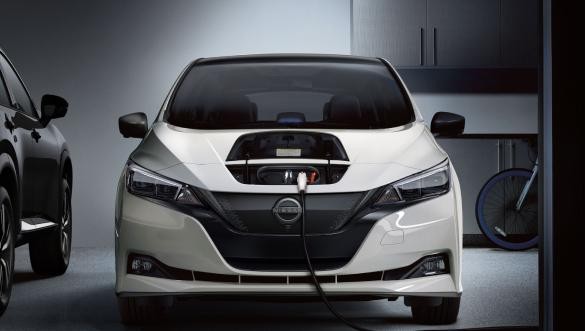
How Long Does It Take to Charge an EV?
Charging your EV has never been faster or easier
For many electric vehicles, including select models of the Nissan ARIYA and LEAF, using a quick charge station can provide up to an 80% charge in under an hour.2 However, several factors impact how fast an EV charges, including the type of charging station you're using, the vehicle's battery capacity and maximum charge rate, and even environmental factors like temperature.
While there's no one specific answer, there are key factors that will help you determine the best EV and charging options for you. At Lee Johnson Nissan of Kirkland we’re happy to discuss EV solutions that suit you best.
Level 1-3 charging (1)
Three levels of charging
Utilize a Level 1, Level 2, or Level 3 charger depending on where you are and what you need. Learn the difference between the three levels and how your ARIYA or LEAF can charge conveniently at home or on the go.2
Other factors that impact EV charging time
Battery capacity, charge rates and environmental factors can impact charging time. See customer disclosure form for details.1
An electric vehicle's battery capacity is typically determined by its size. In general, batteries with smaller capacities will take less time to charge, while batteries with larger capacities will take longer. However, increased capacity batteries provide more range and require fewer charges.
In the same way that there are limitations based on the specific charge point's rate, each vehicle's maximum accepted charge rate impacts the speed at which it can receive power. This means that an electric vehicle will only charge at speeds up to its maximum charge rate, regardless of the charger used.
Certain environmental factors, such as outside temperatures, can impact how quickly an electric vehicle will take to charge, as batteries are sensitive to severe heat and cold. To avoid damaging the battery, an electric vehicle's battery management system will automatically slow down charging when extreme high or low temperatures are detected.
EV battery warranty (8)
Nissan strives to serve all your automotive needs and ensure satisfaction with your EV. Our lithium-ion battery coverage period is 96 months or 100,000 miles (whichever comes first). This warranty covers any repairs needed to correct defects in materials or workmanship subject to exclusions. Limitations apply.
As always, EV specialists at Lee Johnson Nissan of Kirkland are available to answer any questions you might have.
Where to charge your Nissan EV (1)
Ever-growing charging networks mean your charging options continue to grow.2
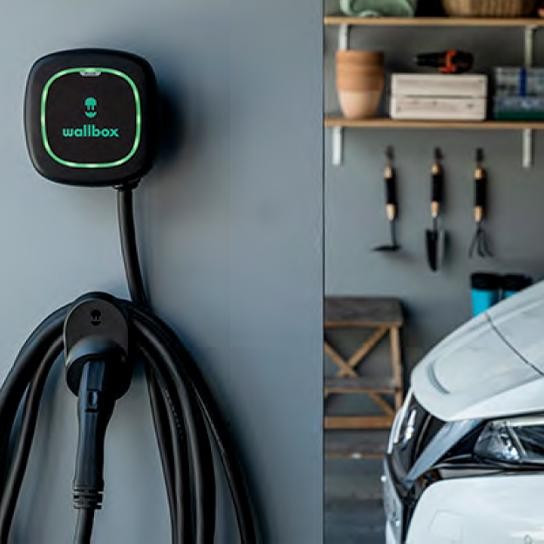
Charging At Home
Whether you need a Level 2 home charger or a bundled home charger and home installation, our team of EV specialists at Lee Johnson Nissan of Kirkland will point you in the right direction. Contact us today.1,7,9
